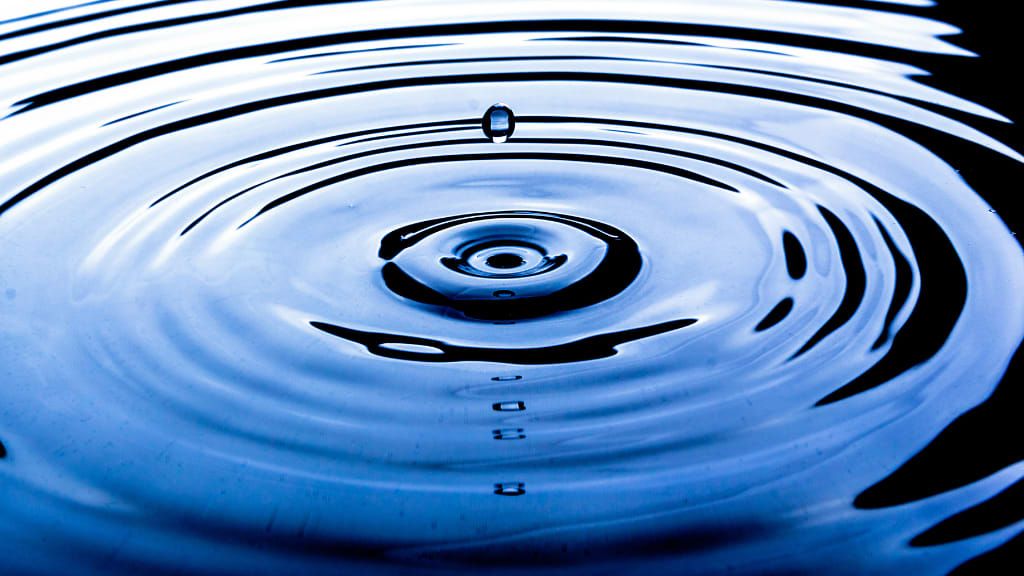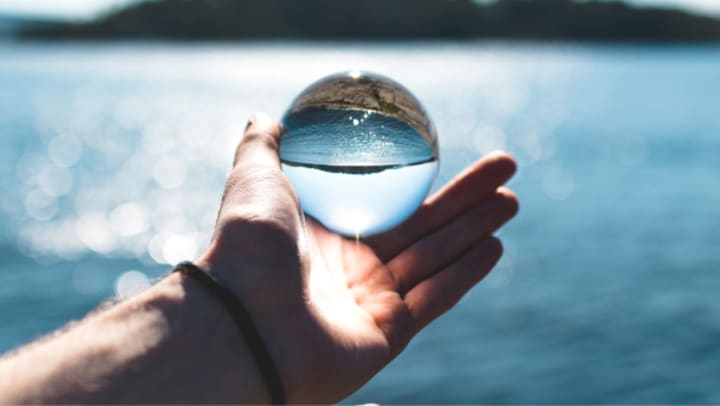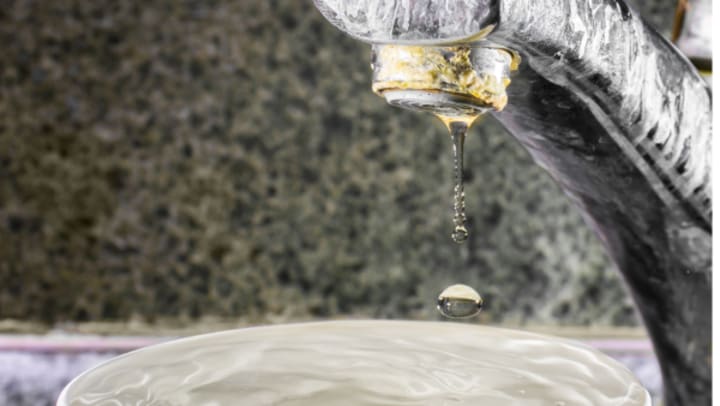Hard water & water descalers
The answers to commonly asked questions

Unsure about something to do with hard water? Perhaps you’ve heard of a misconception about drinking hard water. Well, this is rumour control here with the facts. We will answer your commonly asked questions and misconceptions about hard water and water descalers.
Water and hard water

What is the chemical formula of hard water?
The chemical formula is H2O, the same as the chemical formula for water. The additional minerals present in hard water do not change the chemical compound, resulting in the chemical formula remaining unchanged.
Which is denser, hard water or soft water?
The density or weight of the water is unaffected. Both hard water and soft water have the same density.
What is the hardness of distilled water?
Distilled water can be considered pure, meaning it has no minerals or other impurities present. Distilled water is used for laboratory purposes and sterilising medical equipment due to its purity. Distilled water is soft due to the lack of minerals present.
What are the differences between tap water and distilled water?
The main difference between tap water and distilled water is that tap water will contain impurities, including microbial and organic contaminants. Distilled water is purified to remove all the minerals and impurities.
Why is distillation not suitable for removing water hardness?
Distillation can be used to remove the minerals that make water hard. However, buying distilled water or distilling water can be very expensive and unnecessary. Other alternative methods, such as water descalers, are available to eliminate the problems of hard water at a fraction of the cost.
Hard water problems

How can I clean hard water stains?
A problem faced by households with hard water supplies is hard water stains. These stains are a result of the minerals in hard water forming limescale when heated or evaporated. To remove such stains, consider using acidic solutions, such as vinegar or baking soda.
Steam cleaning
Depending on the thickness of limescale stains will determine whether they can be removed using a steam cleaner. If deposits are not thick, a steam cleaner may help remove them. The thicker or longer deposits are left, the less effective a steam cleaner becomes at removing such stains.
Glass
Limescale stains will easily show on glass surfaces, including shower screens and drinking glasses. In most cases, a solution of white vinegar and boiling water is effective at removing stains from glass. Allow the water to cool before applying, mixing a ratio of 1-3 vinegar to water. Avoid using abrasive cloths as they can scratch the glass.
Stone
Natural stone surfaces are another surface where unsightly limescale stains can build. Using a diluted ammonia solution can be effective in removing limescale stains. Avoid allowing the ammonia solution to dry on your skin. Consider using a smooth cleaning cloth to avoid damaging the stone.
Tiles
Bathroom tiles, particularly around a shower, are a hotspot for limescale stains. In most cases, a diluted solution of white vinegar or baking soda will be effective at removing stains. Consider using white vinegar to break down the mineral deposits before using baking soda to dissolve the stains.
Copper
Copper surfaces can be at particular risk from hard water due to the minerals corroding the copper. Copper piping is particularly at risk. A paste of baking soda and vinegar can help remove stains from copper. Make the paste using 3 parts baking soda for 1 part vinegar.
Will WD-40 remove hard water stains?
WD-40 is a lubricant that offers multi-purpose functionality. A common misconception is that WD-40 can be used to remove limescale stains due to the solution containing hydrocarbons and petroleum-based oil (which makes it alkaline). For that reason, WD-40 is likely to be ineffective at removing stains.
Does bleach remove hard water stains?
No, chemicals such as bleach are not effective for removing hard water stains. To effectively remove hard water stains, you should consider using an acidic cleaning solution. As bleach is an alkaline solution, it is ineffective at removing limescale stains.
Is a water softener worth it?
Water softeners are one way of eliminating the problems associated with hard water. Using a process called ion exchange, the hard water minerals are substituted with other minerals, such as sodium. However, salt-based softeners can make water taste salty or slightly sour.
Hard water and health

Is hard water bad for your teeth?
As the minerals present in hard water are abrasive, people may be concerned that it cause damage to teeth when brushing. However, the minerals present in hard water are not typically abrasive enough to cause damage to the enamel. Only high concentrations of hard water may make a noticeable difference.
There is no evidence to suggest that drinking hard water can cause yellowing of the teeth. Despite direct exposure to minerals when drinking, ironically calcium minerals can benefit your teeth by protecting and strengthening teeth (which reduces the risk of decay).
Can hard water cause kidney stone disease?
A common misconception about hard water and its present minerals is that it causes kidney stones. However, research has shown that drinking hard water doesn’t cause kidney stones. Staying hydrated is one to reduce the risk of developing kidney stones.
Did we answer all your questions about hard water and water descalers? Hard water can be the source of many problems, both in your home and in your skin health. Considering installing a water descaler will help overcome such problems and save you money in the long run.
About the Creator
Enjoyed the story? Support the Creator.
Subscribe for free to receive all their stories in your feed. You could also pledge your support or give them a one-off tip, letting them know you appreciate their work.





Comments
There are no comments for this story
Be the first to respond and start the conversation.